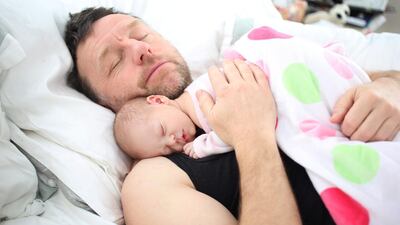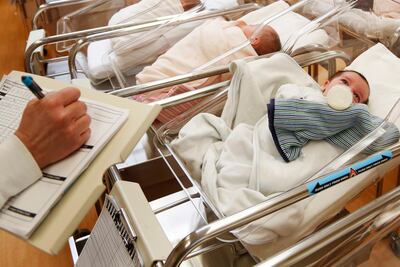A women’s biological clock is something that is widely discussed when it comes to having children, but it turns out, the age of the father can be just as important.
A new study has reviewed more than 40 years’ worth of research into fertility and age in men, and has found that they should consider banking their sperm before they reach advanced paternal age – thought to be around 35.
The research found that those who fathered children beyond this point were more likely to pass on health problems to their babies or partners, including gestational diabetes and preeclampsia in pregnancy, as well as premature birth, stillbirth, low birth weight, newborn seizures and risk of various other birth defects.
Men are also more likely to experience lower rates of fertility as they get older, largely down to a loss of testosterone, which can affect the genetic make-up of sperm, going on to cause various mutations.
"While it is widely accepted that physiological changes that occur in women after 35 can affect conception, pregnancy and the health of the child, most men do not realise their advanced age can have a similar impact," says Gloria Bachman, lead author of the study, which was conducted by Rutgers University and published in the journal Maturitas.
“In addition to advancing paternal age being associated with an increased risk of male infertility, there appears to be other adverse changes that may occur to the sperm with ageing,” she adds. “For example, just as people lose muscle strength, flexibility and endurance with age, in men, sperm also tend to lose ‘fitness’ over the life cycle.”
The average age of parents is rising around the world, with the number of men over 45 having children in the US rising by 10 per cent over the past 40 years, while the British Office of National Statistics shows a continual increase in the age of parents.
However, the study found that Apgar scores – a test that charts appearance, pulse, grimace, activity, and respiration of all newborns – were generally lower in babies with older fathers. Childhood occurrences of cancers, and psychiatric and cognitive disorders such as autism and schizophrenia tended to be higher as well.
The study recommends that men who are planning on having children later in life should take the same approach towards their fertility as women such as having conversations with their doctors and freezing sperm.
The findings follow another study carried out by researches at Stanford University in November, that also found higher paternal age had links to health complications at birth.
The study, published in the British Medical Journal, found that men who embark on the path to parenthood after the age of 45 are more likely to have unhealthier children.
The researchers looked at the records of more than 40 million babies, born between 2007 and 2016, and found that 14 per cent of the children born to men over the age of 45 were either premature, had a low birth weight or required neonatal intensive care, compared to those born to younger fathers.



